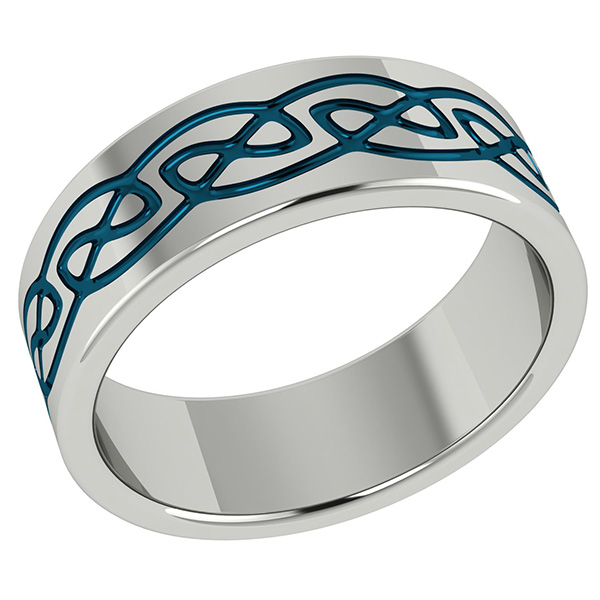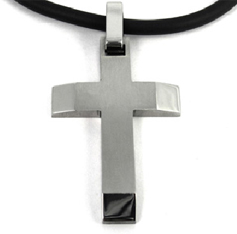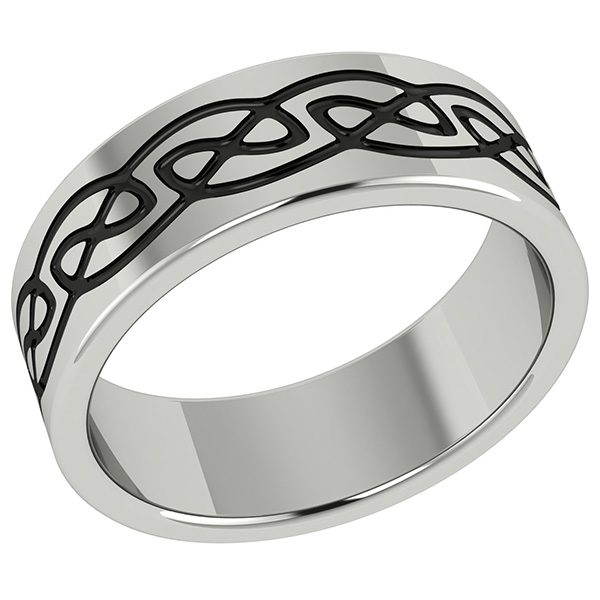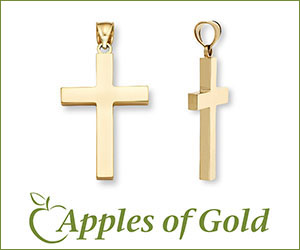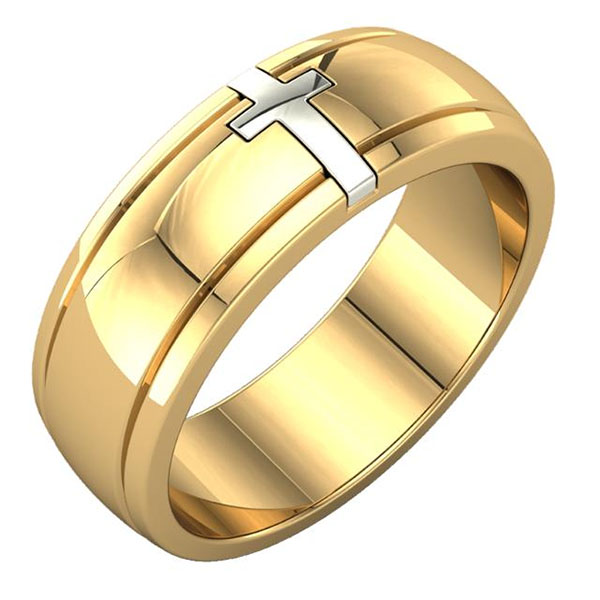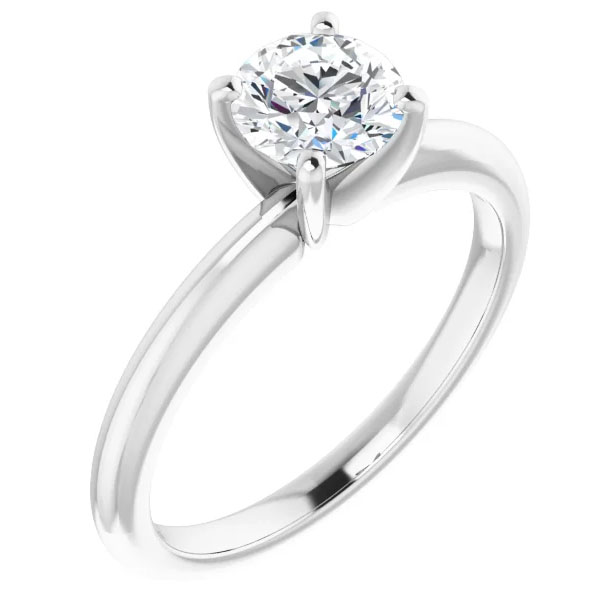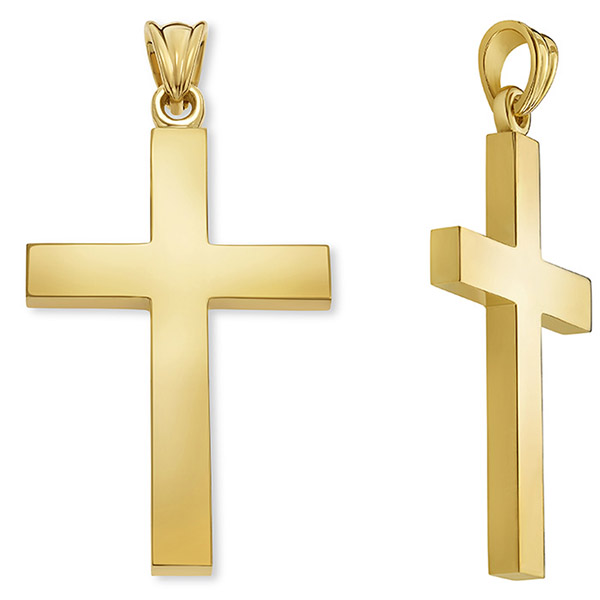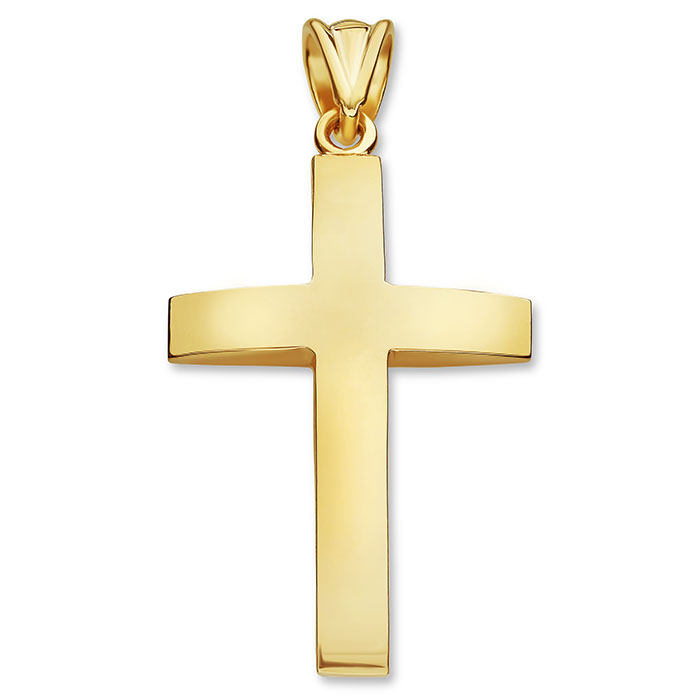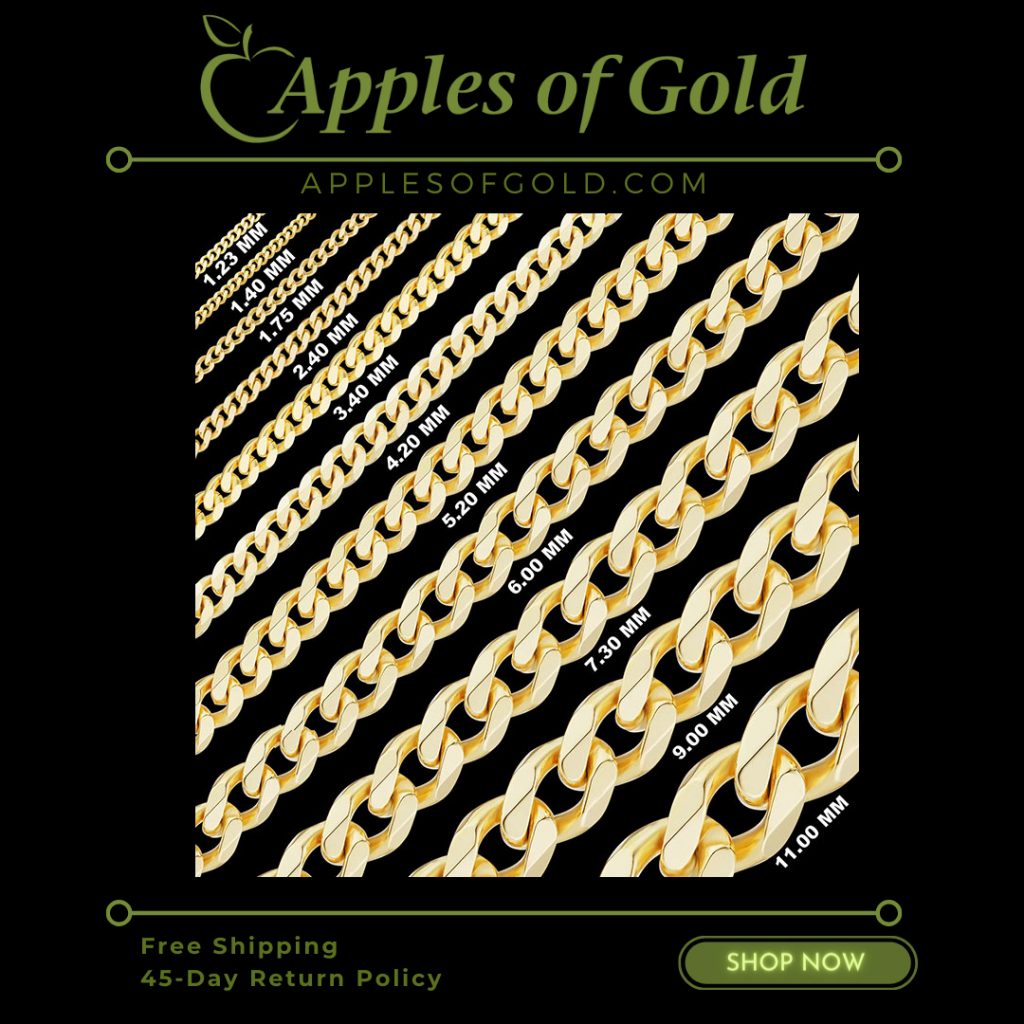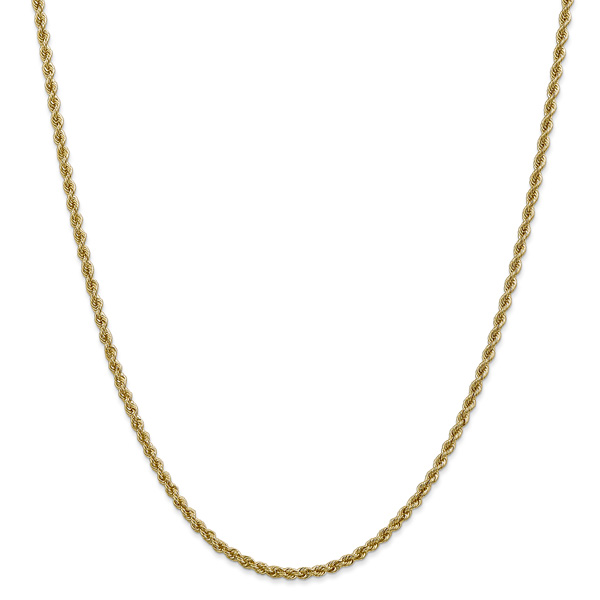All About Titanium Jewelry
Titanium Properties and Characteristics
Titanium (Ti) is a silvery grey metal belonging to the periodic table’s Group 4 (IVb). Titanium is a high-strength, lightweight, low-corrosion structural metal utilized for parts in high-speed aircraft in the form of alloys, which is why aircraft-grade titanium jewelry, such as titanium wedding bands, are extremely durable and strong but also very lightweight. In addition, Titanium is corrosion-resistant in seawater and chlorine. The English chemist and mineralogist William Gregor discovered a titanium-oxygen compound in 1791, which was separately rediscovered in 1795 and was named by the German chemist Martin Heinrich Klaproth.
Titanium has an atomic number of 22, an atomic weight of 47.867, melting point around 1,660 °C (3,020 °F), the boiling point of 3,287 °C (5,949 °F). Additionally, the density of titanium at 20 °C is 4.5 g/cm3 and it exist in +2, +3, +4 oxidation states. The electron configuration of Titanium is [Ar]3d24s2.
Facts About Titanium
The following are some interesting facts about titanium as a metal:
- Titanium is also inherently corrosion-resistant. When Titanium reacts to oxygen for the first time, it makes a thin coating of oxide that protects the rest of the metal from further corrosion.
- Titanium is approximately twice as strong as aluminum.
- Titanium isn’t found in nature by itself. Instead, rutile, ilmenite, and sphene are the minerals that contain it.
- Titanium has a high melting point and will not liquefy until it reaches 3,034 degrees Fahrenheit.
Uses of Titanium in the Real World
The following are some of the uses of titanium in real world applications.
Titanium Jewelry
Titanium jewelry has grown in popularity over the last ten years, and for a good reason. A titanium wedding band is more corrosion-resistant than almost any other metal available for jewelry today. Titanium is also bright and extremely long-lasting, which is items like titanium crosses are also popular for religious and Christian jewelry. It is also a hypoallergenic metal, making it valuable for those with nickel, copper or other base metal allergies.
Medical Implants
Because the human body rarely rejects Titanium, it is frequently utilized for medical implants. It’s considered the world’s most biocompatible metal. Titanium can survive the extreme conditions found inside the human body. At the same time, compared to other metals used in medical implants, it has a decreased chance of rejection.
Aerospace Industry
Titanium is a refractory metal with the atomic number 22 widely used in the aerospace and manufacturing industries, like NASA, SpaceX and even in defense.
The Market Value of Titanium
Due to supply shortages and increased demand from the paint and aerospace industries, titanium prices will continue to rise. Interestingly, we saw a decline in the price of titanium from in the last several decades as raw titanium sold for $9,810 in 1997 per metric ton vs. 2018 where it sold for $4,800 per metric ton.
Popular Types of Titanium Jewelry
Titanium jewelry is no longer just about making long-lasting pieces; it is also an industry that has attracted some of the best avant-garde jewelry developers and designers. While practically any type of jewelry set with Titanium is fashionable these days, promise, engagement, bracelets, earrings, wedding bands, and commitment rings are among the most popular. With today’s improved jewelry manufacturing processes, intricate pieces that were formerly unavailable, such as Celtic titanium wedding bands can also be made as well as powder-coated colored rings.
If you prefer something a little different, black Titanium could be the ideal metal for your wedding band or engagement ring setting. Men’s titanium bracelets are another popular jewelry style. Titanium is an excellent metal for setting gemstones such as diamonds, rubies, sapphires, and pearls. It is incredibly lightweight, hypoallergenic, and an ideal metal for forming gemstones such as diamonds, rubies, sapphires, and even pearls.



